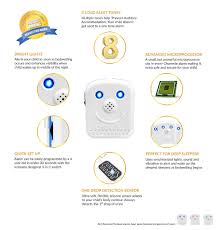Winter, the Season for Bedwetting

Bedwetting (nocturnal enuresis) is a fairly common condition in children age 5 and older. It is a sign of an immature, developing bladder. About 15 percent of normally developing children still wet themselves at night. Staying dry at night is an entirely different milestone than staying dry during the day. Children with bedwetting problems do appear to wet the bed more often during winter than summer. Data shows that the monthly enuresis summer and winter ratio and the nightly enuresis ratio increase in winter months are found to be statistically significant and also noted mild enuresis in the summer months when compared with the average or severe enuresis seen in winter months.
Why does a child wet the bed more in winters and how to stop bedwetting permanently?
Kidneys are responsible for filtering waste out of blood and creating urine. When its cold outside, kidneys have more blood to filter than normal because there’s more blood pumping through body. So, they end up producing more urine, and child pee more frequently.
Tips to prevent bedwetting during winter season
- Have your child go to the bathroom little before getting into bed and then as soon as they are about to sleep. This technique is called double voiding. This means when your child pees, wait a few minutes, and then go again. It’ll help make sure their bladder’s empty.
- Let your child drink more liquids during the day time to be hydrated. But control their liquid intake two hours before bedtime, especially drinks such as tea or sodas that contain caffeine. once you set a routine that does not involve drinking right before lights out, your child will quickly stop asking for the drink.
- Some children will be dry through the night and then wet their bed early in the morning. Parents need to identify their sleep pattern and wake them a few minutes earlier than their natural wake up time and take them to pee.
- Use a bedwetting alarm (enuresis alarm). These alarms have sensor that is attached to the child’s undergarment where the drops of urine first occur. It detects the moisture and triggers the alarm and wakes the child so that they can go to the bathroom before having an accident. Slowly with in few weeks the child learns to wake up when their bladder is full and get to the bathroom in time.
- Minimize disruption and discomfort at night. If your child is wetting the bed in the first few nights after you are trying to help them stop bedwetting use a waterproof mattress pads and keep a clean set of sheets and sleepwear at hand in case a change is needed.
- Make sure your child has easy access to the toilet. Clear the path from their bed to the toilet and install night-light so they do not trip or fall. Use a dim night light for children who are afraid of the dark.
- Avoid stimulating activities before bedtime such as rough and tumble games, exciting or scary TV programs, computer games or strenuous mental activities. This can disturb their sleep and can make them lazy to get up when their bladder is full and they wet the bed.
- Your child needs to be very involved in the treatment plan if it is to work. Be very positive on the good nights, and try not to be negative on the bad ones. Motivate your child and let him keep a record chart of dry and wet nights.
- To stop bedwetting permanently, some children like to put stars or stickers on their chart for dry nights. Choose something that fits in with your child’s interests, for example, football stickers. Charts used on their own usually have little success, but in combination with other treatments they can be very useful.
Tags: About Bedwetting, Bedwetting Advice, Bedwetting Solutions, Bedwetting Tips, Nighttime Bedwetting, Parental Advice
https://chummiebedwettingalarm.com/blog/bedwetting-in-winter/


Comments
Post a Comment